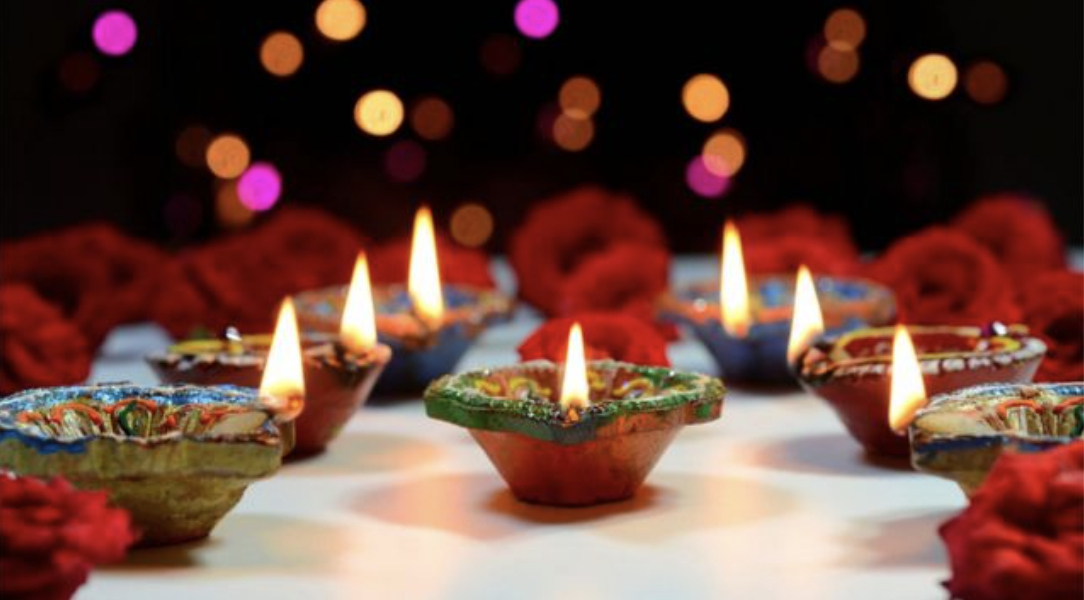By: Arshie-Amelie Chaudry and Chantel Mager
Fireworks light up the sky. Diya lamps line the pavement. Doorways are adorned with rangolis. For South Asians all over the world, this can only mean one thing: Diwali – the festival of lights.
Last Thursday marked the most important day in the annual celebration of Diwali, one of the most important holidays in the Indian calendar. Over the course of five days, it represents a time when families celebrate the triumph of light over darkness, good over evil and hope over despair. The holiday reinforces cultural beliefs about unity and togetherness. It is a tradition for families to perform rituals dedicated to deities called pujas, feast on homemade food and sweets like laddoos, buy new clothes, exchange gifts and most importantly spend time together.
The presence of lights in many different forms is essential to celebrating this festival. In fact, Diwali derives its name from the Sanskrit term deepavali, meaning “row of lights.” Houses, shops and public places are decorated with clay oil lamps called diyas, which are hand-crafted tiny cups filled with oil and a cotton wick. Lights are intended to dispel darkness, fear and ignorance.
A diya being lit
Diwali is celebrated by Hindus, Sikhs, Jains and Buddhists around the world, and has different meanings for different religious communities. For example, Hindus celebrate Diwali with fireworks, which, according to legend, were used to celebrate the return of Lord Rama (an incarnation of the god Vishnu) after a battle with the demon Ravana. Diwali also honors Lakshmi, the goddess of prosperity and wealth. For Sikhs, the festival coincides with Bandi Chhor Divas or the Day of Liberation. This celebrates the release of Sikh religious leader Guru Hargobind from prison around 1612. For Jains, Diwali marks the anniversary of religious leader Lord Mahavir achieving moksha (freedom from the cycle of reincarnation). For Buddhists, the holiday is celebrated as Ashok Vijayadashami, the day Indian Emperor Ashoka the Great converted to Buddhism.
Diwali’s symbolism is now more vital than ever. Countless people were impacted during the COVID-19 pandemic. India was hit particularly hard, with 35 million cases officially recorded. Many families found it difficult to celebrate Diwali last year since places of worship were closed and mass gatherings were forbidden. The public health crisis in India is currently dissipating, with daily cases dropping from 400,000 in May to 10,000-12,000 recently. Vaccines have provided the world with an opportunity to heal, allowing people to celebrate the possibility of recovering and starting anew throughout the holidays. South Asian communities are extremely appreciative of the fact that they have the opportunity to celebrate Diwali at this time.
For South Asians, Diwali is an important part of their identity, a way to stay connected to their culture, religion and background. Yadna Prasad (IV) said, “While my family isn’t religious, this holiday has been a major celebration for as long as I can remember.” Alyssa Chaudry (VI) says “I may not be Hindu, but I have never felt excluded from Diwali celebrations.” You do not necessarily have to follow any religion to feel included in the festival, as many celebrate it for the cultural and traditional aspects of the holiday.
While South Asian students and faculty at Fieldston are grateful to have the day off, they can’t help but wonder why 2021 marks the very first year that Fieldston recognizes Diwali and other South Asian holidays like Eid. History teacher Ms. Singh explained that she is “so, so happy that Diwali is being recognized by Fieldston, but disappointed it took until now.” It is evident that most Fieldston students were not aware of what Diwali was prior to last Thursday. This is why recognizing Diwali as a holiday is critical to raising awareness about South Asian cultures, which ultimately makes the Fieldston community a more inclusive environment for all.






